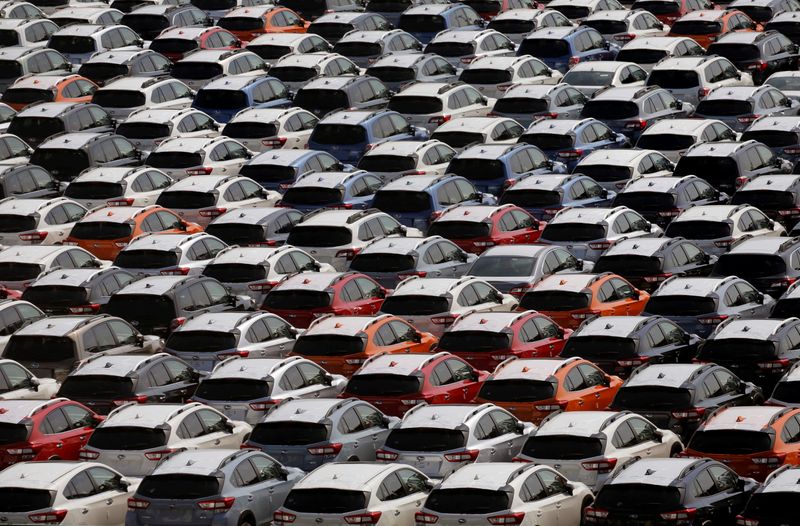TOKYO (Reuters) – Japan’s automobile sales slumped 31.3% in October from a year earlier to mark the fourth straight month of declines, industry data showed on Monday, a sign output cuts caused by the COVID-19 pandemic were hurting the country’s already weak consumption.
The domestic sales data is among few indicators available so far in gauging the strength of consumption since state of emergency curbs to combat the pandemic were lifted on Sept. 30.
The sales slump highlights the widening damage of supply disruptions on the economy. A global parts and chip shortage has taken a heavy toll on automakers, forcing them to slash global output and causing delays in delivery of cars.
The supply constraints, if prolonged, could prevent Japan’s economy from staging a solid rebound from an expected flat or negative growth in July-September, analysts say.
“We expect the economy to achieve annualised growth of around 5% in October-December mainly due to strong consumption,” said Taro Saito, an economist at NLI Research Institute.
“But there are many risks,” including the chance supply constraints last longer than expected, he added. Saito expects the economy to have contracted by 0.9% in the third quarter.
The government will release Japan’s July-September preliminary gross domestic product (GDP) data on Nov. 15.
(Reporting by Leika Kihara, Editing by Louise Heavens)























